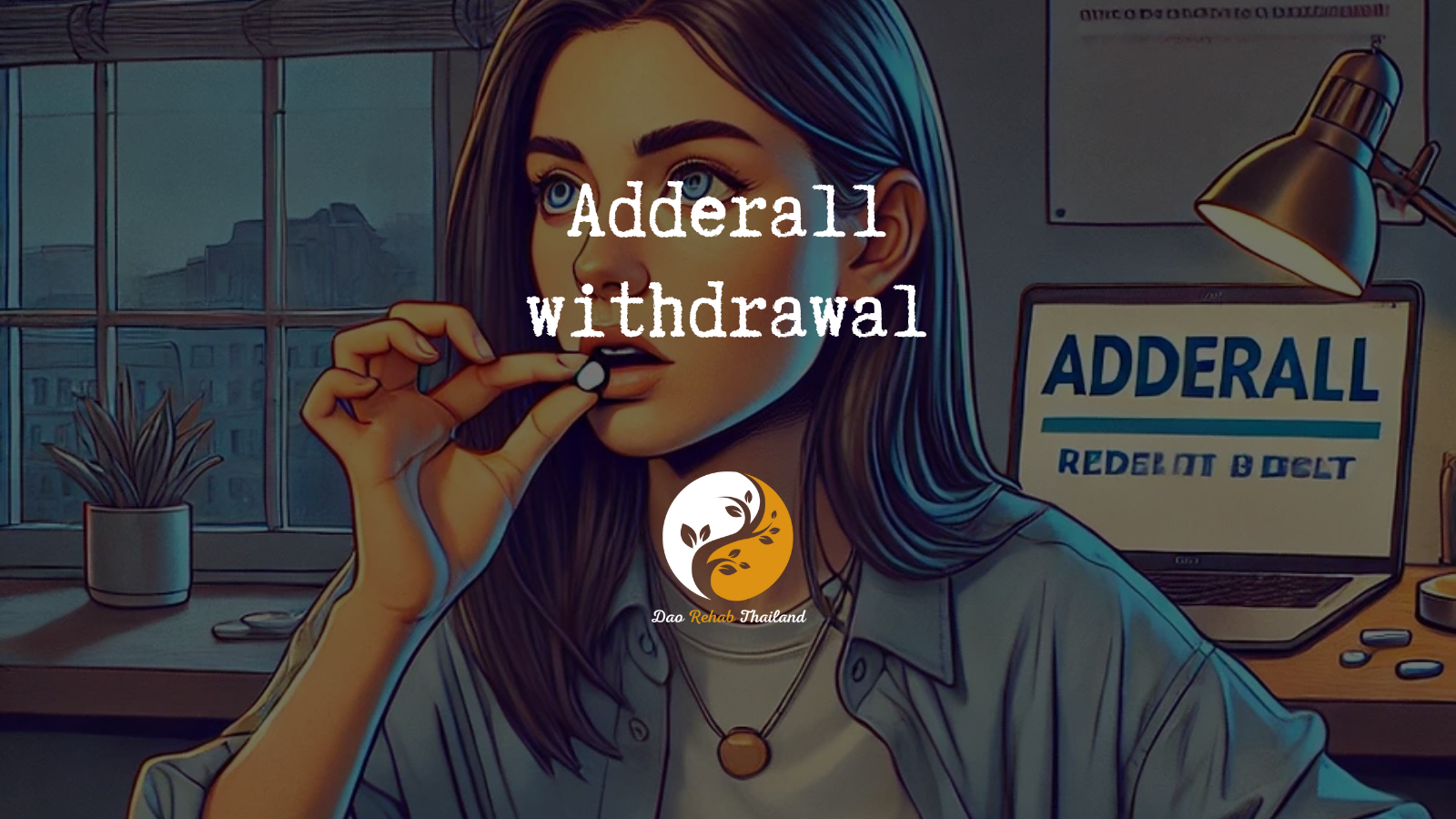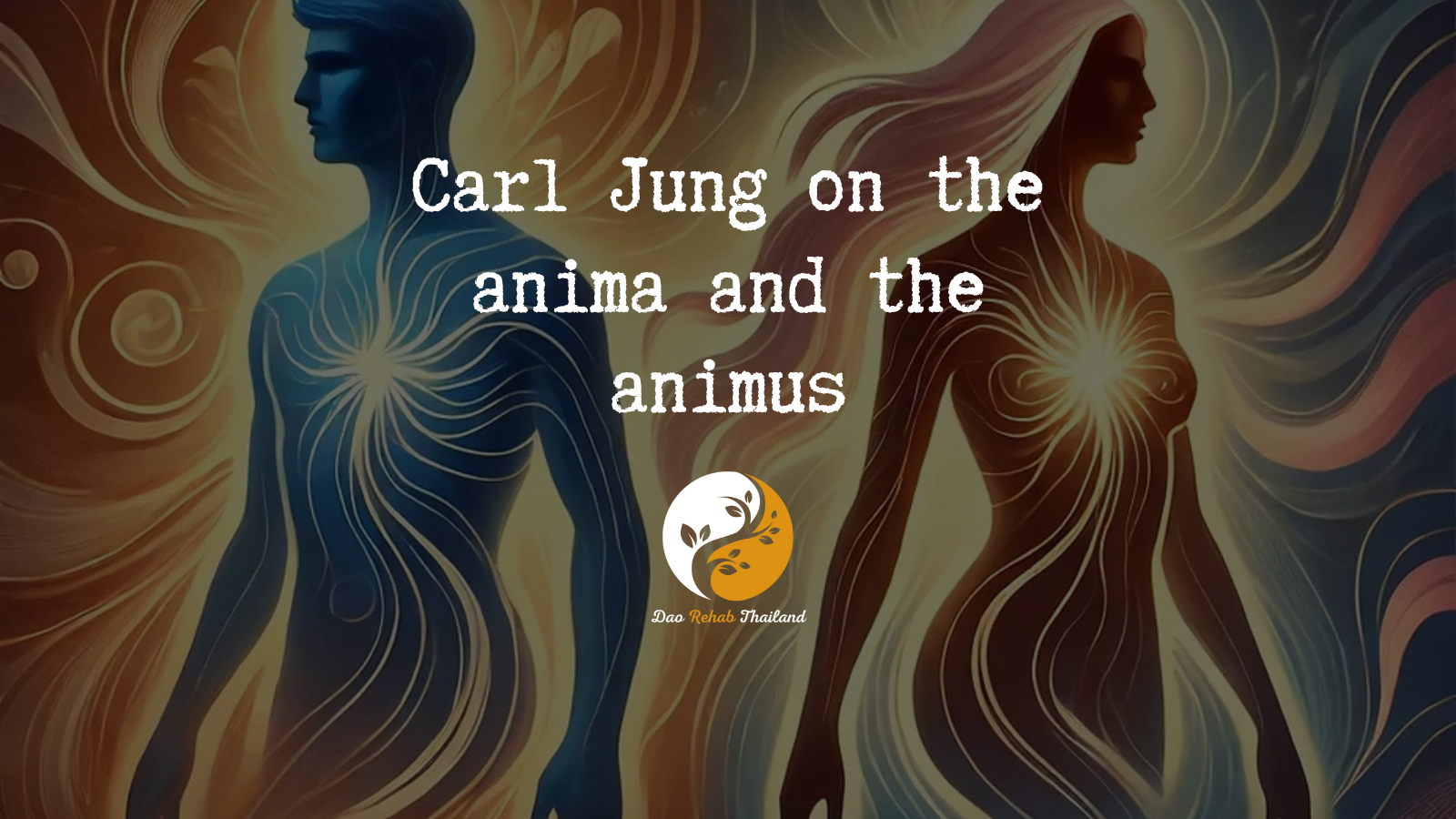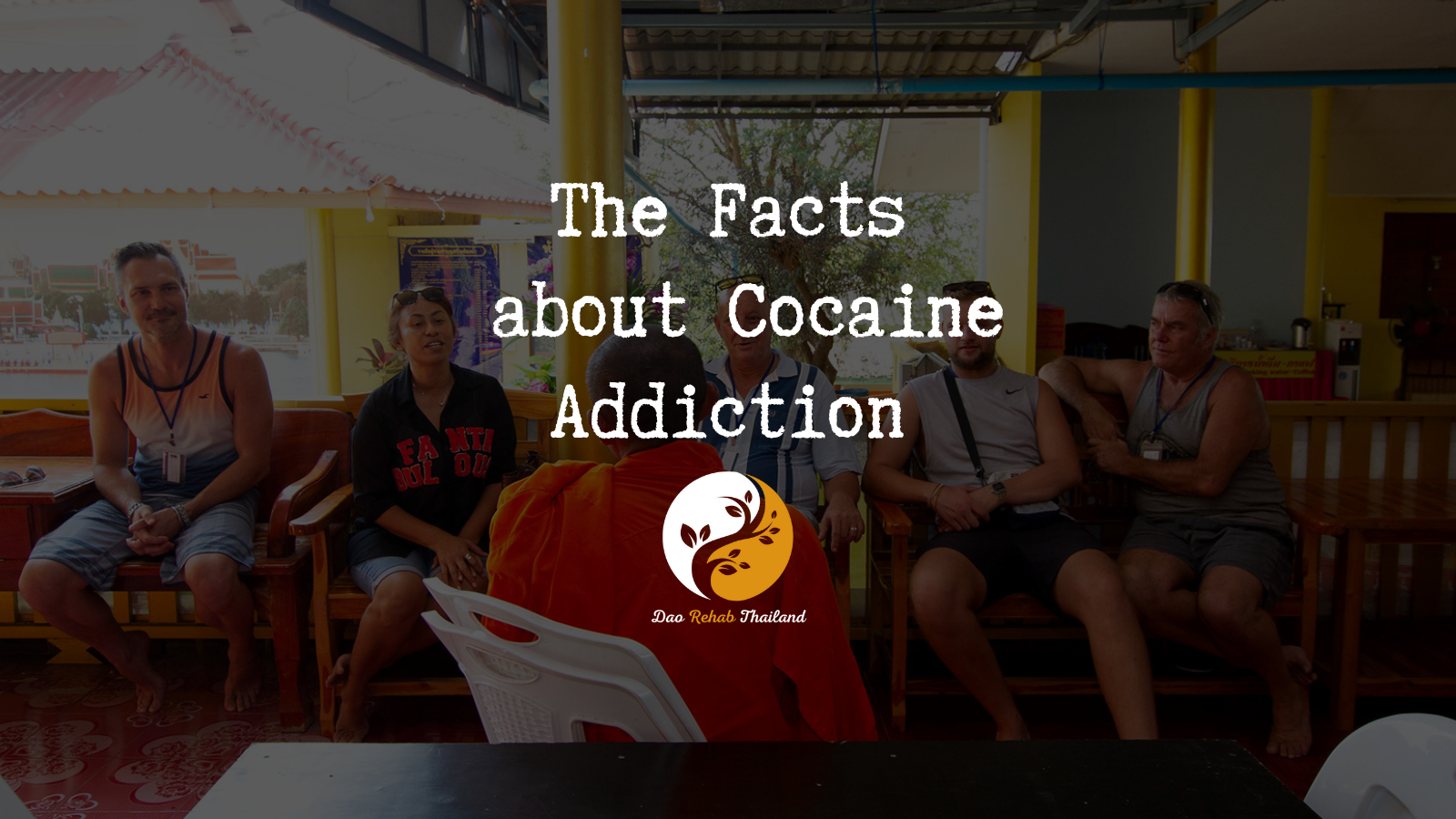
Adderall withdrawal-Holistic rehab in Thailand
Adderall withdrawal
“Turning the impossible into possible”

"Detox from Drugs at a Luxury Holistic Center in Thailand and Israel"

Adderall withdrawal
Addiction to Adderall, a common prescription medication for attention deficit hyperactivity disorder (ADHD), has become a worrying problem in recent years. In an in-depth interview, Michael Moulton, a former Adderall addict and host of a radio show about addiction and recovery, shares his personal story and insights into the dangers of abusing this medication.
"Holistic Center for Trauma, Addiction, and Mental Imbalance Treatment in Thailand"
“Come to the beginning of your journey to freedom from addiction to alcohol, drugs, and pills, and rediscover your life within the serene embrace of DaoTherapy Rehab in Thailand—where holistic healing meets empowering recovery.”
DaoTherapy Holistic Rehab
Key Elements of Drugs Detox:
Medical Supervision: Drugs detox must be conducted under medical supervision, as the body may experience withdrawal symptoms. These can include nausea, anxiety, muscle aches, and insomnia. A medical team will monitor and manage these symptoms to ensure the patient’s safety and comfort.
Holistic Therapies:
Holistic Therapies: Many detox programs incorporate holistic therapies such as mindfulness, yoga, and meditation to help individuals cope with stress and anxiety during the detox process. These therapies support the mind-body connection and contribute to overall recovery.
Tapering Process
Tapering Process: Drugs detox often involves a gradual tapering of the drug to reduce withdrawal severity. Doctors will slowly decrease the dosage over time to allow the body to adjust to lower levels of the substance.
Psychological Support:
Psychological Support: Like any addiction recovery process, detox from Drugs includes psychological support. This can involve counseling, therapy, or support groups to address the mental and emotional aspects of addiction.
Post-Detox Treatment:
Post-Detox Treatment: After completing detox, continuing treatment is crucial to prevent relapse. This often includes participation in ongoing therapy, group support, and the development of new coping strategies to maintain sobriety.
Development and history of Adderall
Adderall is the brand name of a medication containing a mixture of amphetamines. This medication is primarily used to treat attention deficit hyperactivity disorder (ADHD) and narcolepsy. Here is some historical background on Adderall:
Development and History of Adderall
1. Early Development:
The medication was developed in the 1920s and 1930s: Amphetamines, which are the basis of Adderall, were first synthesized in the late 1800s, but medical use did not begin until the 1920s and 1930s. In 1937, psychiatrist Charles Bradley discovered that amphetamines could improve behavior and concentration in children with attention problems.
2. The Invention of Adderall:
The 1990s: Adderall was first launched in 1996 by Shire Pharmaceuticals. The medication was originally developed under the name Obetrol, a diet pill that contained a mixture of amphetamines. When its effectiveness in treating ADHD was recognized, its name was changed to Adderall and it became one of the most commonly used medications for treating this disorder.
3. Medical Use and Expansion:
2000s and onwards: Adderall became one of the most commonly used medications for treating ADHD and narcolepsy. The use of the drug spread rapidly, especially in the United States, and it became an integral part of the treatment of ADHD.
Side Effects and Abuse
1. Side Effects:
Adderall can cause side effects such as decreased appetite, sleep problems, nervousness, increased heart rate, and high blood pressure. The use of the drug requires careful medical monitoring.
2. Abuse:
Like Ritalin, Adderall can also be abused. Many students use Adderall to improve their academic performance, even though they do not have a diagnosis of ADHD. Abuse can lead to addiction and serious health problems.
Current Status and Discussions Around the Drug
1. Monitoring and Enforcement:
Due to the increasing use of Adderall, authorities in the United States and other countries are increasing monitoring and enforcement of prescriptions and use of the drug. There is also an increase in public awareness of the dangers of misuse.
2. Research and Developments:
Studies continue to examine the long-term effects of Adderall and its effectiveness in treating ADHD. There is also a search for alternative medications with fewer side effects and a lower risk of addiction.
Summary
Adderall is a drug that can be used to treat ADHD and narcolepsy, but its use carries risks and can lead to addiction. It is important for patients to be fully aware of the high price they will pay for temporarily better grades and functioning.
Adderall, which contains a mixture of amphetamines, can be abused and lead to addiction. Abuse of Adderall includes taking high doses or using methods that are not intended for medical use. Here are the ways addicts abuse Adderall:

contact us
Contact us with your questions
We would love to speak with you! Feel free to reach out with any questions.

get in touch
Schedule a free consultation
Schedule a free consultation with our team and let’s make things happen!
How to abuse Adderall
1. High Dose Taking:
Addicts may take Adderall in much higher doses than prescribed by their doctor, in order to achieve a stronger and more stimulating effect.
2. Changing the way they use it:
Crushing and snorting: Instead of taking the drug in tablets, addicts may crush the tablets and inhale the powder through their nose. This method allows the drug to enter the bloodstream quickly, causing a fast and strong effect.
Injection: Some users dissolve the drug in water and inject it directly into a vein. Injection increases the stimulating effect but also increases the risk of infections and damage to the blood vessels.
3. Use with other drugs:
Addicts may use Adderall with other drugs such as alcohol or cannabis to increase the stimulating effect or to alleviate the side effects of the drug.
4. Non-medical use:
People who do not have ADHD may use Adderall for other purposes, such as improving academic or work performance, to increase alertness and concentration.
5. Chronic use:
Regular and continuous use of Adderall without breaks, which leads to the development of tolerance to the drug. In this situation, users require increasing doses to achieve the desired effect.
Risks and consequences of abuse
1. Addiction:
Adderall abuse can lead to physical and psychological addiction. Users may feel a strong and constant need to use the drug and experience withdrawal symptoms when they try to stop.
2. Serious side effects:
– Use of high doses or dangerous methods of use such as injection can cause serious side effects such as heart problems, high blood pressure, anxiety, psychosis, and depression.
3. Physical damage:
Inhaling or injecting the drug can cause damage to nasal tissues, blood vessels, and the heart, as well as the risk of infections and other diseases.
Abuse prevention
1. Follow-up with an addiction specialist:
It is important that patients follow the instructions of a psychotherapist and receive guidance on exercises and a spiritual and athletic lifestyle.
2. Education and awareness raising:
Raising awareness about the risks and negative effects of Adderall abuse can help prevent addiction.
3. Support and treatment:
People struggling with Adderall addiction should seek professional help, including personal and group support, to overcome the addiction and recover.
Adderall abuse is a serious problem that can lead to addiction and serious health damage. It is important to be aware of the risks and take action to prevent addiction through medical monitoring, education and awareness raising, and professional support and treatment.
Michael's story with Adderall
Michael describes how Adderall creates a temporary sense of euphoria and motivation to perform tasks, but quickly leads to addiction and an inability to complete things. He emphasizes how taking Adderall increases cravings for alcohol and nicotine, and can escalate to dangerous doses that cause paranoia, hallucinations, and even “blackouts.” Withdrawal from Adderall involves severe symptoms such as depression, intense cravings for stimuli, and a long process of brain and body rehabilitation.
Michael explains how Adderall, known as “the speed of the rich,” is stronger and cleaner than drugs like cocaine and methamphetamine, but has similar effects. He says that taking Adderall to “cure” attention deficit disorder in childhood or adolescence can easily become addictive, especially when combined with alcohol.
As a polyaddict (addicted to multiple drugs), Michael emphasizes the need for complete withdrawal from all drugs, including caffeine, to truly recover. He describes how the process of recovery requires simplifying life, reducing stressors, spiritual work, and helping others. Michael believes that a person can only find true freedom when they release and forgive others, and entrust their lives to a Higher Power.
He says the key to staying clean from addiction lies in regular attendance at support meetings, daily gratitude, faith in a Higher Power, and helping others who are struggling with similar challenges. He emphasizes the importance of refraining from judging each person’s personal journey of recovery, and instead encourages mutual support for a common goal—staying clean and sober one day at a time.
Michael’s story illuminates the complex and challenging reality of Adderall and prescription drug addiction, and highlights the need to raise awareness of the dangers associated with the misuse of these drugs. At the same time, he offers hope and effective tools for those seeking to break free from the cycle of addiction and build healthier, more fulfilling lives. Michael’s journey proves that recovery is possible, and that with the right guidance, support, and commitment, anyone can overcome the unique challenges of Adderall addiction and find new meaning and purpose in their lives.
Adderall Addiction: The Hidden Dangers and the Road to Recovery
Introduction: Prescription Drug Addiction
Prescription drug addiction has become a growing concern in recent decades. One of the most problematic drugs in this regard is Adderall, a common medication used to treat attention deficit hyperactivity disorder (ADHD). Despite its effectiveness in improving concentration and cognitive performance in some patients, Adderall also poses a high potential for abuse and addiction, especially among young people and adults who take it without proper medical supervision. It is important to raise awareness of the dangers of uncontrolled use of Adderall, and to provide information and tools for those seeking to break free from the cycle of addiction.
Michael’s Story: From Addiction to Recovery
Michael Moulton, a former Adderall addict and host of a radio show about addiction and recovery, shares his personal journey with the drug. He describes how he was misdiagnosed with attention deficit disorder as a child and prescribed Adderall, which gave him a sense of euphoria and the ability to drink alcohol in larger quantities. What began as an attempt to “cure” his difficulties quickly became a destructive addiction that took over his life. Michael emphasizes that the path to true recovery for him involved complete abstinence from all secondary substances, including caffeine, and adopting a spiritual lifestyle based on helping others, connecting with a higher power, and working the 12-step program. He believes that any addict, regardless of the specific substance they are addicted to, can find a similar path to freedom and fulfillment in life.
The Dangerous Effects of Adderall
Michael vividly describes the immediate and dangerous effects of taking Adderall. While the drug initially creates a sense of euphoria, motivation, and the ability to multitask, it soon creates dependence and leads to a vicious cycle of taking ever-increasing doses. Users experience inability to sleep, increased anxiety, paranoia, and even hallucinations. In addition, Adderall increases cravings for other addictive substances such as alcohol and nicotine, creating a “downward spiral” of polysubstance addiction. Withdrawal from Adderall involves unbearable withdrawal symptoms that include depression, irritability, fatigue, and a sense of hopelessness. Michael emphasizes that only complete withdrawal, along with lifestyle changes and professional help, can lead to true recovery.
The Connection Between Adderall and Illegal Drugs
Michael emphasizes the obvious similarities between Adderall and harder drugs such as cocaine and methamphetamine. He calls Adderall “the speed of the rich,” as it is a cleaner, stronger, and more expensive substance, but has the same devastating effects on the body and mind. In fact, many Adderall addicts at some point also switch to using illegal drugs as a cheaper and more readily available alternative. This highlights the importance of treating Adderall as a drug for everything, with the potential for addiction and destruction that comes with it, and not just as a “safe” and legitimate medication for treating attention deficit disorder.
Polyaddiction: The Challenge of Multiple Substance Addiction
Michael’s story illustrates the complexity of the phenomenon known as polyaddiction, or multiple substance addiction. Adderall addicts often also develop dependence on alcohol, nicotine, and other drugs, in an attempt to balance or enhance the effects of each. This creates a destructive vicious cycle, in which the body and mind need ever-increasing doses of addictive substances, and any attempt to stop using one leads to an increase in the consumption of the others. Michael explains that the only way to deal with polyaddiction is complete and gradual withdrawal from all substances involved, along with a comprehensive change in habits, social environment, and entire lifestyle. It takes immense mental strength and ongoing support to break free from the cycle of multidimensional addictions, but it is certainly possible.
Principles of Recovery: Spirituality, Joy, and Service
Michael shares the profound insights he gained in his recovery process from multiple substance addictions in general, and Adderall in particular. He emphasizes the centrality of spirituality, and the recognition of a higher power (as each person perceives it), as the basis for real change. Only surrender and recognition of helplessness in the face of addiction, and the willingness to hand over attempts to control life to this power, allow for real progress. In addition, Michael sees service and helping others as an essential component of recovery. Working with other addicts, initiation, sharing experiences – all of these make it possible to stay “clean”, to give meaning to life, to pass on the gift we have received. Only a life of integrity, transparency, and connection to the sublime allows for true liberation from the shackles of addiction.
Call to Action: There is a Way Out, There is Hope
Michael’s personal story is an inspiring call to action for anyone struggling with Adderall addiction, or any other substance. The central message that emerges from it is that recovery is possible for everyone, regardless of the depth and duration of the addiction, and that there is always reason for hope. At the same time, recovery requires a deep commitment to change, and a willingness to deal with mental and physical pain on the way out. It is a process that requires courage, honesty, and support – both from the addict himself, and from his loved ones and those around him. Michael invites listeners to seek help today, acknowledge their situation, and take the first step towards freedom from addiction. Remember – it is never too late to change.
In conclusion
Addiction to Adderall and other prescription drugs is a common and disturbing challenge in contemporary society. Michael Moulton’s personal story sheds light on the dangers of uncontrolled use of these substances, but also gives hope for the ability of every person to heal, change, and find new meaning in life. The road to recovery is full of difficulties, but also immense satisfaction and opportunity for spiritual and mental growth. With the help of raising public awareness, proper education of medical teams, and strengthening support and treatment systems in the community, we can combat the scourge of addictive addictions and offer relief to addicts and their families. It is important for all of us to remember – there is a way out, and no one has to deal with addiction alone.
Psychological Support:
Psychological Support: Like any addiction recovery process, detox from Subutex includes psychological support. This can involve counseling, therapy, or support groups to address the mental and emotional aspects of addiction.
Key insights:
1. Adderall can cause a sense of euphoria and motivation to complete tasks, but ultimately leads to addiction and makes it impossible to complete anything.
2. Taking Adderall increases cravings for alcohol and nicotine, and can lead to taking dangerous doses that cause paranoia and hallucinations.
3. Withdrawal from Adderall involves depression, intense cravings for stimuli, and a long process of brain rehabilitation.
4. Adderall is the “speed of the rich” – a drug that is cleaner and stronger than cocaine and methamphetamine but has similar effects.
5. Taking Adderall to “cure” ADHD can easily become addictive, especially when combined with alcohol.
6. A polyaddict (addicted to several drugs) must completely abstain from all drugs in order to recover, including caffeine.
7. The process of recovering from addiction requires simplifying life, removing stressors, spiritual work, and helping others.
8. A person can only find true freedom when they release and forgive others and surrender their life to a higher power.
9. Daily support meetings, gratitude, trust in God and helping others are key to staying clean from addiction.
10. It is important not to judge others’ journeys to recovery but simply to support the shared aspiration to stay clean and sober.
Practical advice:
1. Don’t try to use Adderall as a “cure” for ADHD, it’s a surefire recipe for addiction.
2. Avoid taking Adderall without a prescription or close medical supervision at all costs.
3. If you are addicted to Adderall, know that complete recovery is possible and worth the effort in the long run.
4. Simplify your life, reduce stress, and find deeper spiritual meaning to help you overcome addiction.
5. Join a support group, work the 12 steps, and help others stay clean.
6. Focus on your own recovery and don’t judge others’ journeys. Everyone wants to stay clean and sober.








